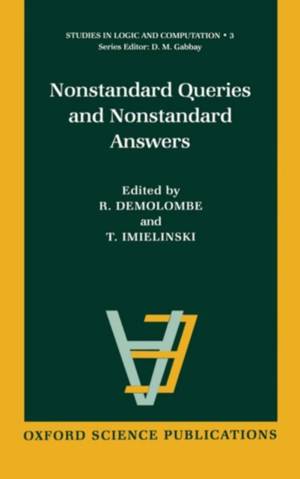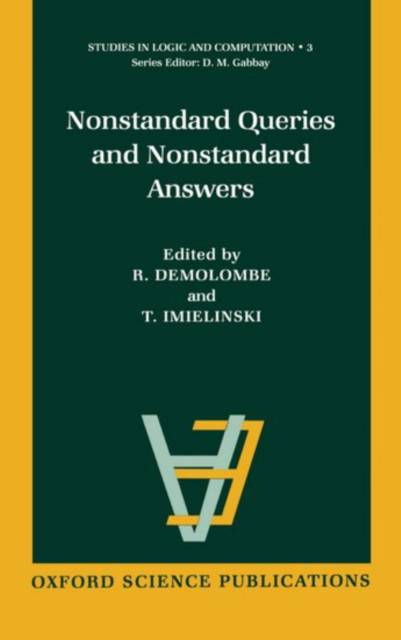
Bedankt voor het vertrouwen het afgelopen jaar! Om jou te bedanken bieden we GRATIS verzending (in België) aan op alles gedurende de hele maand januari.
- Afhalen na 1 uur in een winkel met voorraad
- In januari gratis thuislevering in België
- Ruim aanbod met 7 miljoen producten
Bedankt voor het vertrouwen het afgelopen jaar! Om jou te bedanken bieden we GRATIS verzending (in België) aan op alles gedurende de hele maand januari.
- Afhalen na 1 uur in een winkel met voorraad
- In januari gratis thuislevering in België
- Ruim aanbod met 7 miljoen producten
Zoeken
€ 290,45
+ 580 punten
Omschrijving
Future data and knowledge base systems will require new and improved functions such as richer data modeling capabilities, more powerful query languages, and new conceptions of query answers. Future query languages will need to include hypothetical, abductive, meta-, and modal reasoning, involving both knowledge and belief. And intentional answers will ultimately lead to cooperative query answering which takes into consideration a user's expectations. This book explores the formalization of new queries and answers, and emphasizes the important role of non-classical logic. It shows how logic permits precise definitions for concepts like cooperative answers, subjective queries, and reliable sources of information. The work also gives a precise framework for reasoning about such complex concepts. Topics include cooperative query answering, metareasoning and abductive reasoning, and hypothetical and subjunctive reasoning. Students and researchers in database computing and artificial intelligence will want to read this book.
Specificaties
Betrokkenen
- Auteur(s):
- Uitgeverij:
Inhoud
- Aantal bladzijden:
- 292
- Taal:
- Engels
- Reeks:
- Reeksnummer:
- nr. 3
Eigenschappen
- Productcode (EAN):
- 9780198538523
- Verschijningsdatum:
- 29/12/1994
- Uitvoering:
- Hardcover
- Formaat:
- Genaaid
- Afmetingen:
- 152 mm x 229 mm
- Gewicht:
- 598 g

Alleen bij Standaard Boekhandel
+ 580 punten op je klantenkaart van Standaard Boekhandel
Beoordelingen
We publiceren alleen reviews die voldoen aan de voorwaarden voor reviews. Bekijk onze voorwaarden voor reviews.









